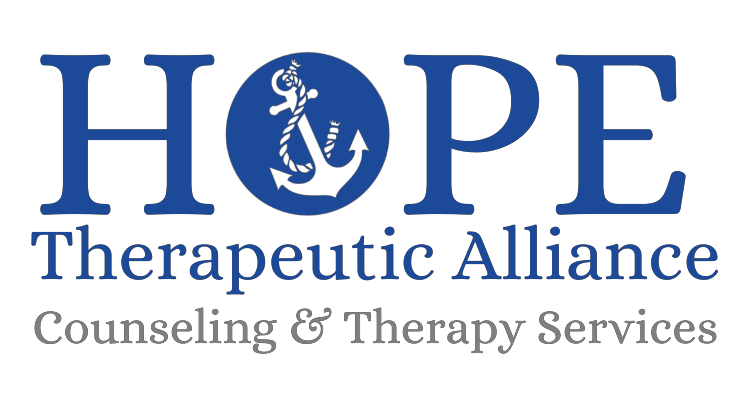Scrolling Through Life: San Antonio Counselor Shares How Tech Overload is Messing with Your Mind
Let's face it: our lives are a constant digital dance. We wake up to flashing notifications, spend our days glued to screens, and unwind with a pre-bed social media scroll. It's no surprise that this tech overload can leave us feeling drained, scattered, and, frankly, a little fried.
But what's the real connection between all this screen time and our mental well-being? Turns out, it's a deep dive. Constant information bombardment affects our focus, sleep, and mood in ways we might not even realize.
What is the Downside of the Digital Uplink?
Do you ever feel like your brain can't keep up with the constant barrage of pings and notifications? You're not alone. The constant switching between emails, texts, and social media can be a real focus killer. Our brains get used to the quick dopamine rush of a new notification, making it tough to concentrate on deeper work or meaningful conversations. It's like mental whiplash! When you frequently switch between tasks, your brain is forced to "reorient" itself each time. This reorientation requires cognitive resources, making it harder to remain focused on a task. Constantly switching digital tasks can lead to cognitive overload and mental fatigue, which reduces the brain’s ability to sustain attention over longer periods. When the brain remains partially engaged with many tasks over long periods of time, reducing the brain’s capacity to focus on a single task and making it harder to engage in deep work or creative thinking.
Sleepless in Seattle (or Anywhere You Are): The blue light emitted from screens disrupts our natural sleep-wake cycle (circadian rhythm) and suppresses the hormone (melatonin) responsible for regulating sleep. This can make it harder to fall asleep and stay asleep, leading to fatigue, irritability, and even depression. Spending excessive time on screens can also cut into sleep hours, especially if the activity is engaging or addictive, causing later bedtimes, shortened sleep duration, and more fragmented, less restorative sleep.
The Comparison Trap: Social media feeds are highlight reels, not real life. Constantly comparing ourselves to the curated online personas of others, their possessions, and social activities can lead to feelings of inadequacy, anxiety, and low self-esteem. FOMO (fear of missing out) has become one of the main reasons people remain hyperconnected. Seeing others enjoy experiences, events, or possessions can trigger feelings of missing out or being left behind, fueling negative self-perception about reality and normality. These filtered, edited, and highly curated content skews our perception of reality, making it easy to believe that others' lives are more exciting, fulfilling, or successful than they really are.
So, how do we unplug, recharge, and reclaim control of our mental well-being in this hyper-connected world?
1. Try a Digital Detox:
Just like our bodies need a break from unhealthy foods, our minds need a break from constant digital stimulation.
Schedule "tech-free" zones. Designate certain times or areas in your day or home as tech-free zones. For example, no phones at the dinner table or during bedtime routines.
Utilize screen time management tools. Many devices have built-in features to limit daily screen time or block distracting apps during work hours.
Rediscover the lost art of boredom. Boredom can actually be a catalyst for creativity! Give yourself permission to be unplugged and see where your mind wanders.
2. Be Mindful with Your Tech Use:
It's not about eliminating technology altogether, but rather using it mindfully.
Ask yourself, "Why am I reaching for my phone?" Are you truly trying to connect or are you just scrolling mindlessly to fill a void?
Unsubscribe from negativity. Are your social media feeds overflowing with drama and negativity? Hit unfollow! Surround yourself with accounts that inspire, uplift, and bring you joy.
Embrace the power of "Do Not Disturb." Silence notifications when you need to focus on a task or simply want to be present in the moment.
3. Reconnect with the Real World:
Technology can be a great tool for connection, but it's important to nurture real-life relationships as well.
Plan tech-free outings with friends and family. Focus on authentic conversations and shared experiences.
Spend time in nature. Studies show that spending time outdoors can reduce stress, improve mood, and boost focus.
Engage in hobbies you enjoy. Whether it's reading, painting, or playing music, make time for activities that bring you joy and a sense of fulfillment.
Remember, you are not alone in this tech-fueled world. We all face the challenge of maintaining balance between our digital lives and our mental well-being.
Our team of counselors at HOPE Therapeutic Alliance can help:
Still feeling overwhelmed by the constant ping-pong of notifications? You're not alone! At HOPE, we understand how technology can hijack your focus and leave you feeling drained.
Our team of tech-savvy counselors can help you:
Unplug and recharge. We'll help you identify unhealthy tech habits and create a more mindful approach to technology use.
Say goodbye to tech-induced stress. Learn coping mechanisms for managing anxiety and finding peace in a digital world.
Sleep like a champ. Improve your sleep hygiene so you can wake up feeling refreshed and ready to tackle the day.
Connect for real. Develop tools for maintaining healthy, meaningful relationships in a digital age.
Let's ditch the digital dependency and reclaim your mental well-being! Reach out to HOPE for a free 15-minute online consultation. Our team of San Antonio counselors can help you navigate the tech world without sacrificing your focus, peace, and happiness. Let's get you feeling your best again!



